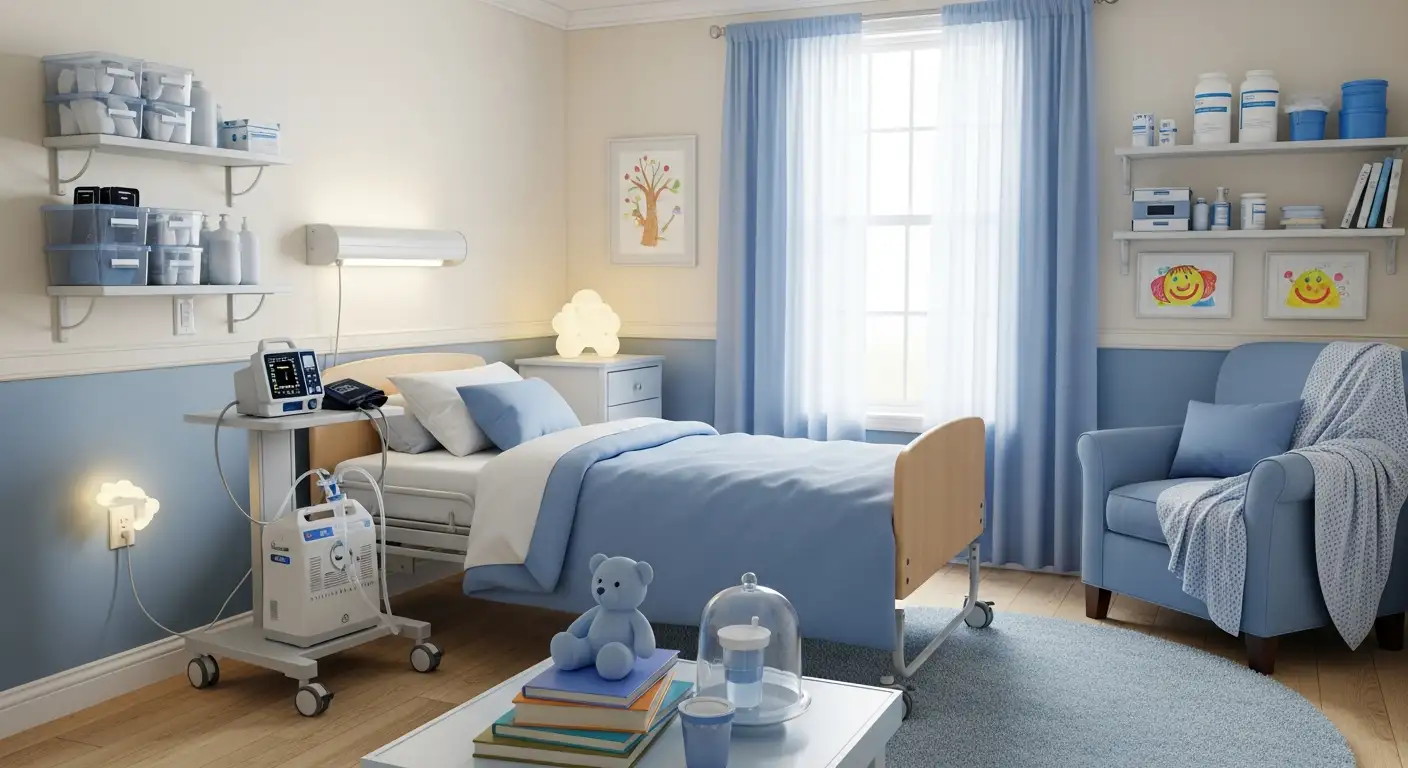Understanding the Impact of In-Home Pediatric Services
Pediatric home care has emerged as a crucial element in early childhood development, providing personalized medical, therapeutic, and developmental support within the familiar environment of a child’s home. This approach not only enhances early detection of developmental issues but also fosters a nurturing space where children can thrive physically, cognitively, and emotionally.
Comprehensive In-Home Pediatric Services Facilitate Holistic Development

How does pediatric home care support the achievement of developmental milestones in children?
In-home pediatric services are designed to promote a child's overall growth by delivering tailored medical and therapeutic care directly within the familiar environment of the child's home. This approach makes it easier to observe and respond to subtle signs of developmental delays, ensuring issues are identified early.
Therapeutic services such as speech, physical, and occupational therapy are integral components of in-home care. These therapies are often more effective when conducted in a setting where the child feels secure and comfortable, encouraging active participation and better engagement. For example, physical and occupational therapy sessions help children develop motor skills, coordination, and independence through customized strategies that fit their daily environment.
Early detection of health issues and ongoing developmental monitoring help healthcare providers and parents track milestones like crawling, walking, talking, and social interactions. Regular observation by caregivers and specialists allows for timely adjustments to intervention plans, reducing the risk of delays and supporting children in reaching their full potential.
Family involvement plays a crucial role. In-home care encourages parental and caregiver participation through training and guidance, empowering them to support developmental activities. Caregivers learn to facilitate activities such as tummy time, safe play, and problem-solving tasks that promote cognitive and motor development.
This holistic model also incorporates educational interventions tailored to children with special needs. Individualized learning plans are implemented through in-home visits, which reinforce learning, social skills, and emotional stability.
Regular monitoring combined with interdisciplinary collaboration ensures that children are supported across all developmental domains. This supportive environment reduces stress for the child and family, fostering emotional bonding and resilience.
Overall, in-home pediatric services nurture a child's independence and health by providing a comprehensive, accessible, and responsive approach to development. This model not only helps children achieve important milestones but also builds a foundation for lifelong growth and well-being.
| Aspect | Benefits | Additional Details |
|---|---|---|
| Medical Care | Early detection, continuous health management | Regular check-ups, screenings, and interventions |
| Therapeutic Services | Motor, speech, and sensory development | Customized therapy plans conducted in familiar settings |
| Developmental Monitoring | Milestone tracking, early intervention | Observations by professionals and caregivers, timely adjustments |
| Family Involvement | Empowerment, bonding, supportive environment | Caregiver training, participation in therapy activities |
Supporting early milestones through in-home services significantly improves a child's developmental trajectory, ensuring they receive personalized care geared toward their unique needs.
Strategies and Interventions to Boost Motor and Cognitive Skills
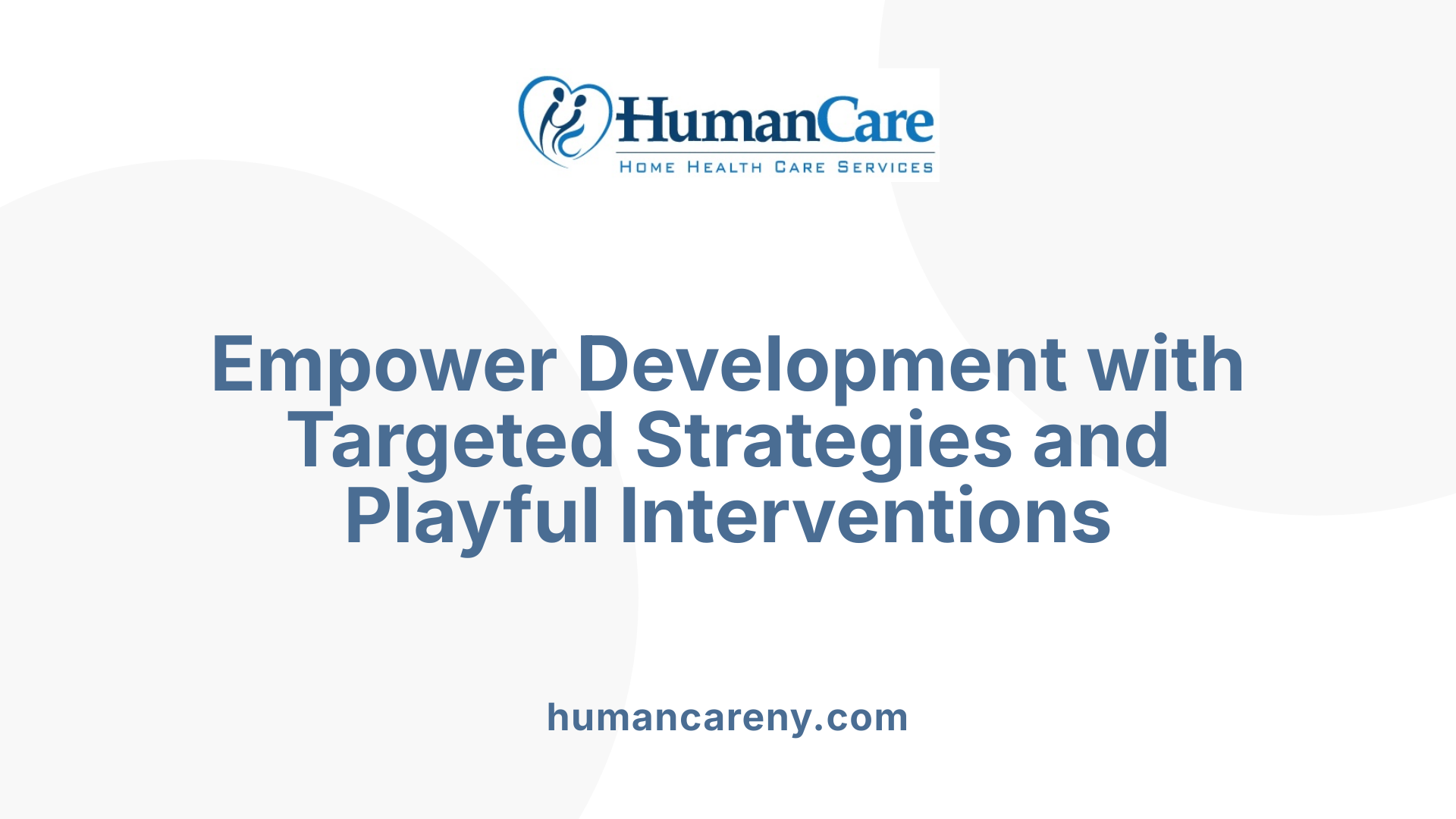
What strategies and interventions are used in pediatric home care to promote motor and cognitive development?
In pediatric home care, a variety of strategies are employed to support a child's motor and cognitive growth effectively. Early intervention activities carried out by caregivers are fundamental, as they promote active engagement and stimulate development in a familiar environment. These activities include simple exercises like tummy time, encouraging prone positioning, and strengthening muscle groups, which are vital for motor milestones.
Supervision and guidance from healthcare professionals are crucial. They increase caregiver confidence and motivation, leading to more consistent and effective support. Regular coaching helps parents understand how best to implement therapeutic activities tailored to their child's specific needs.
Therapeutic interventions such as physical, occupational, speech, and behavioral therapies are tailored to each child's developmental stage. Conducted at home, these therapies provide real-world practice opportunities that reinforce new skills and encourage independence.
Play-based activities serve as a core component of development support. Engaging children with age-appropriate toys, sensory stimuli, and pretend play fosters cognitive skills, language, and social-emotional growth. Sensory integration techniques help children process sensory information better, improving their motor coordination and self-regulation.
Assistive technologies, including adaptive devices or communication aids, are incorporated when necessary to facilitate progress and access to learning activities. These tools can enhance mobility, communication, and everyday functioning.
Ongoing monitoring and collaboration with educators and specialists promote a comprehensive approach. Parenting support programs empower caregivers by providing education on developmental milestones, fostering mental well-being, and strengthening the parent-child relationship.
The culmination of these strategies creates a nurturing environment that encourages continuous development, supports family bonding, and helps children reach their full potential.
The Critical Role of Early Detection and Play in Developmental Success
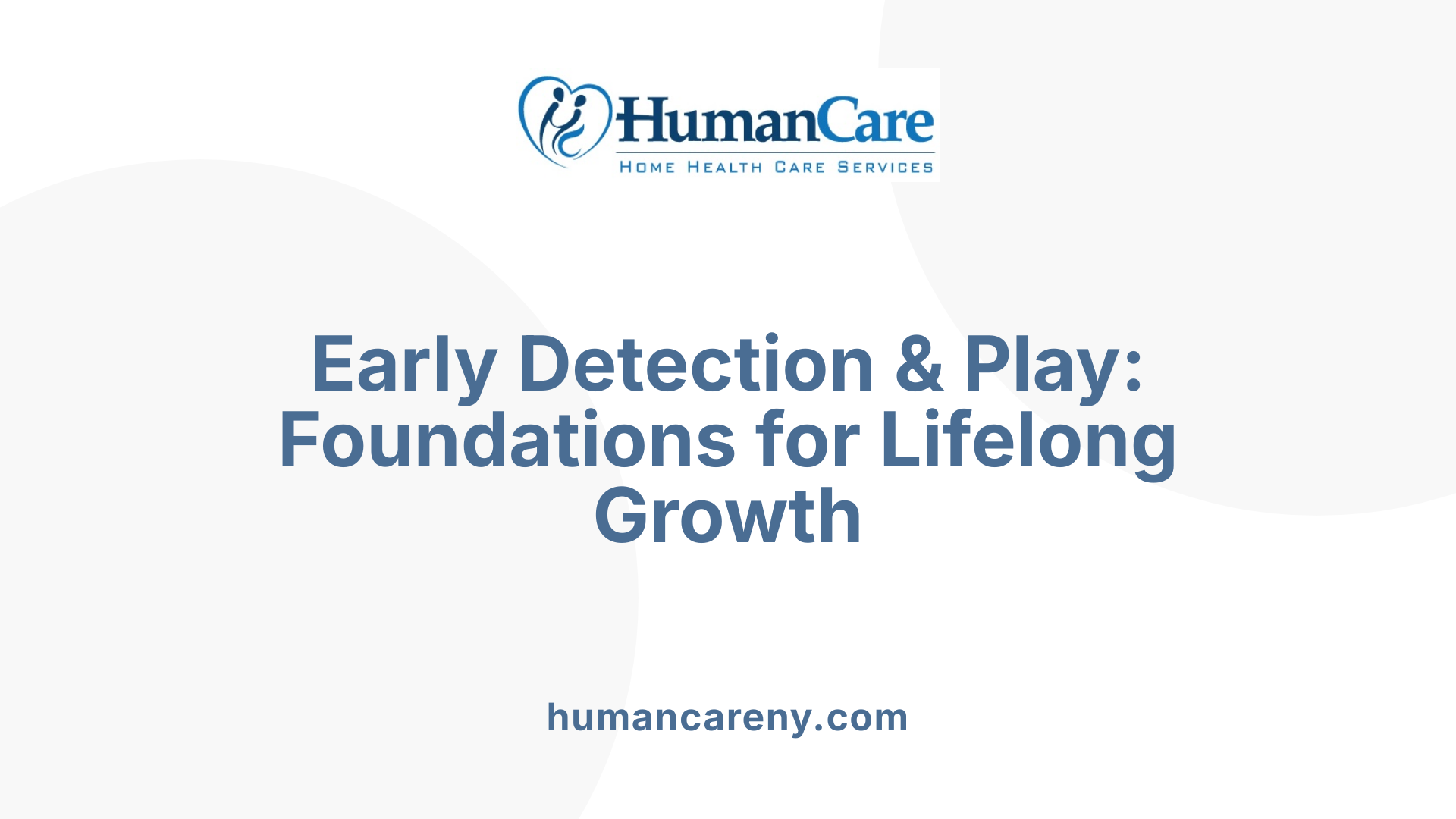
Why are early intervention, play, and developmental activities important in pediatric home care?
Early detection of developmental delays is vital in pediatric home services because it allows for timely intervention, which can significantly influence a child's developmental trajectory. Regular monitoring and milestone tracking enable caregivers and healthcare providers to spot subtle behavioral or developmental issues before they impact long-term growth.
Interventions such as speech, physical, and occupational therapy are most effective when started early. They are tailored to the child's unique environment and needs, promoting motor skills, communication, and independence. Engaging children in activities like tummy time and play not only supports physical development but also fosters social and cognitive skills.
Play is more than just a fun activity; it is a powerful tool that supports brain development. It helps develop language, problem-solving abilities, and social skills. Play also strengthens emotional regulation and resilience, especially when it involves interaction with parents or peers.
In the home setting, parents are empowered through training and support, which enhances their confidence and involvement. Increased parental participation enriches the child’s experiences and promotes emotional bonds, crucial for healthy development.
Overall, early interventions and developmentally appropriate play create a nurturing environment that reduces risks of delays, encourages holistic growth, and sets the foundation for future success in learning, socialization, and emotional well-being.
How do play and social interaction influence brain development and learning?
Play stimulates multiple brain regions involved in social, emotional, and cognitive development. Different types of play—such as object manipulation, outdoor activities, pretend play, and social games—support various developmental domains.
Research shows that play boosts neuronal connectivity, promotes the production of brain-derived neurotrophic factor (BDNF), and enhances synaptogenesis—the formation of connections between neurons. These processes are essential for learning and adapting.
Reciprocal interactions during play help regulate stress responses, making children more resilient to adversity and toxic stress. Play also encourages the development of executive functioning skills like cognitive flexibility, inhibitory control, and working memory, which are crucial for school readiness.
Pediatricians advocate for incorporating play into regular check-ups to promote development and advocate for unstructured playtime as a core part of childhood. Guided and scaffolded play activities, using age-appropriate toys, optimize learning and skill development.
Enhancing children's developmental outcomes through early interventions
Early interventions, including parent-led activities like tummy time and supervised motor exercises, promote healthy growth and prevent delays. Consistent guidance, positive attitudes, and motivation lead to successful outcomes.
Tracking developmental milestones helps caregivers understand normal growth patterns and identify when extra support might be needed. When delays are detected promptly, children can access early intervention services, which significantly improve their chances of reaching developmental milestones.
Programs such as HealthySteps and frameworks like the WHO’s Nurturing Care Framework emphasize the importance of early, comprehensive support starting from pregnancy. These initiatives focus on creating nurturing environments that foster healthy brain development and prepare children for future learning.
In summary, early detection through surveillance and milestone tracking, combined with responsive caregiving and engaging play, builds a strong foundation for a child's lifelong health, learning, and emotional resilience.
Empowering Families Through Education and Monitoring
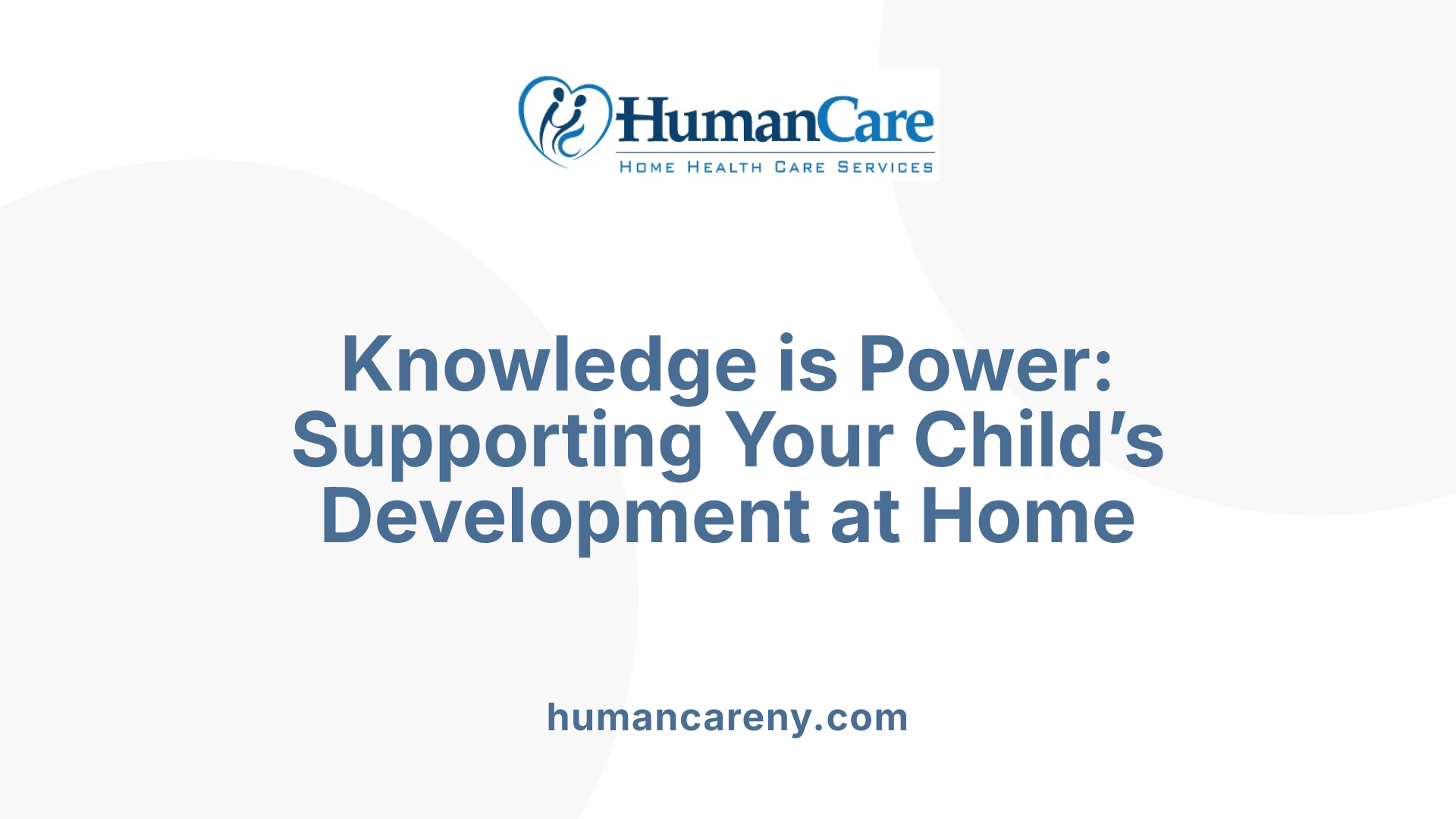
How can educational content help parents and caregivers in supporting children’s developmental progress at home?
Educational resources are essential tools for empowering parents and caregivers to actively support their child's growth. These materials, including milestone checklists, instructional videos, and family guides, help families monitor developmental milestones such as speech, motor skills, and social behaviors. By understanding what typical development looks like, caregivers can spot early signs of delays or concerns.
Programs like Head Start emphasize the importance of family involvement through structured home visits, socialization activities, and culturally responsive strategies. These approaches build strong parent-child bonds and promote developmental progress across various areas. Regular communication between families and professionals, coupled with practical assessment tools, enables caregivers to adapt their activities and provide targeted support.
Educational content also boosts caregiver confidence, helping them learn simple, effective activities like tummy time, reading, or play-based interactions that foster cognitive, physical, and emotional skills.
In summary, providing families with accessible, easy-to-understand educational resources equips them to promote healthy development, recognize early issues, and seek professional help when necessary.
The Framework for Nurturing Care and Its Role in Child Development
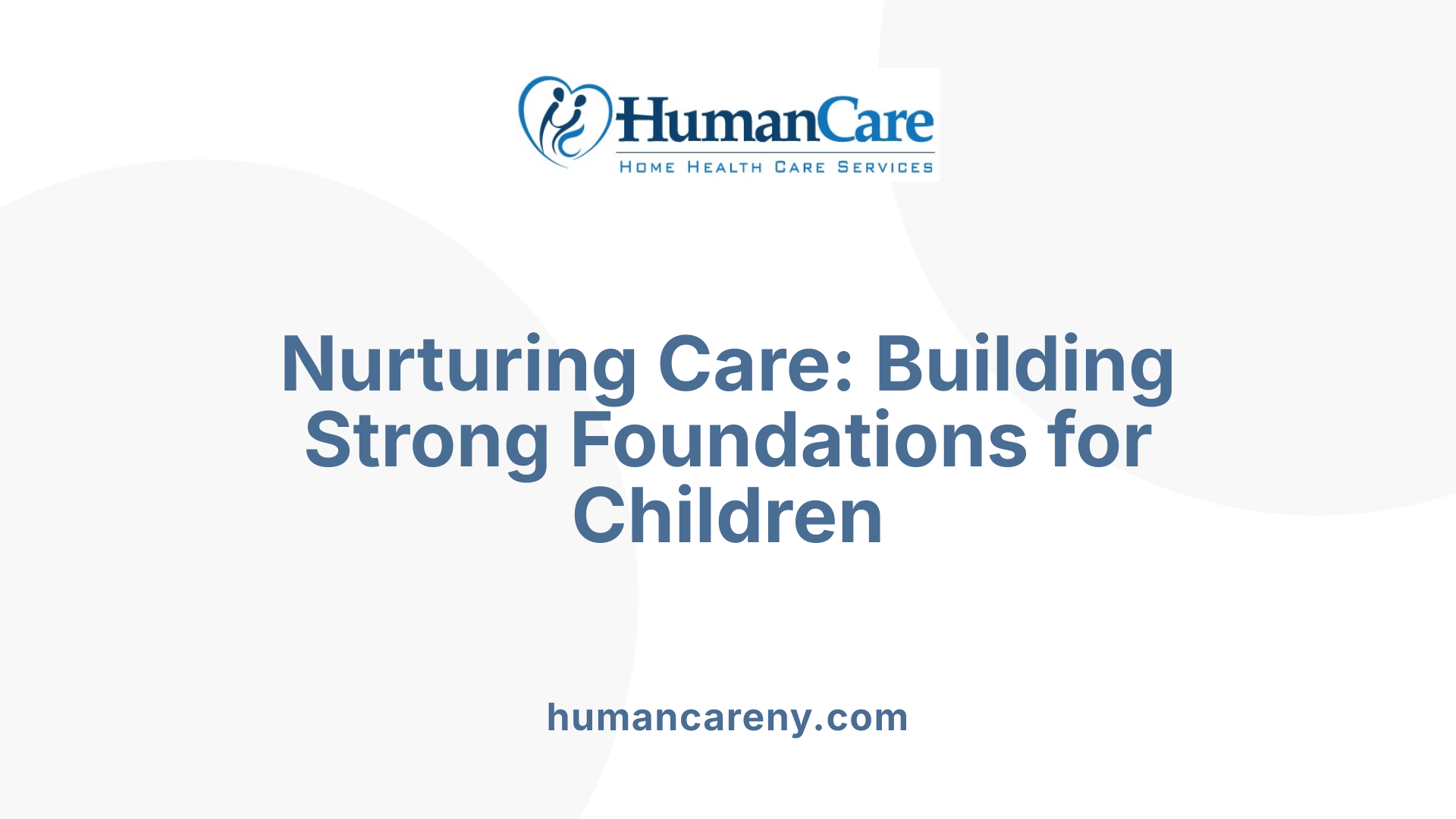
What are the components of nurturing care?
Nurturing care encompasses several essential elements that support a child's healthy growth and development. These components include adequate nutrition, good health, safety, security, opportunities for learning, and responsive caregiving. Engaging in activities like breastfeeding, immunization, and providing safe, clean environments helps establish a foundation for optimal physical and cognitive development.
Responsive caregiving is critical, involving meeting the child's needs promptly and appropriately. This fosters secure attachments, emotional resilience, and supports the development of social and emotional skills. Early interaction through play, talk, and touch promotes brain development, helps develop language, and builds social bonds.
Why are early experiences and a nurturing environment vital for supporting developmental milestones?
Early experiences strongly influence brain development, affecting cognitive, speech, and motor skills. Supportive environments enriched with stimulating activities and nurturing interactions help children reach important developmental milestones on time.
Creating a safe environment with clean air, water, sanitation, and safe play areas encourages exploration and learning. Such settings also protect children from injury and illness, enabling continual development.
Engaged, responsive caregivers foster emotional security, which builds resilience against adversity. Regularly tracking developmental milestones guides caregivers to identify when children may need additional support, ensuring timely interventions.
How do healthcare systems support early childhood development?
Healthcare systems are vital in delivering essential interventions from pregnancy through early childhood. They facilitate immunizations, nutrition counseling, health screenings, and early identification of developmental delays.
Programs like WHO's Nurturing Care Framework emphasize the importance of continuous contact with health services. These services help monitor developmental progress and provide guidance to caregivers.
From prenatal care to preschool programs, healthcare providers educate families about stimulating activities like play, which enhances cognitive and motor skills. They also support caregiver mental health, recognizing its influence on how well they can nurture and respond to their child's needs.
| Component | Description | Additional Details |
|---|---|---|
| Nutrition | Proper diet including breastfeeding and complementary foods | Supports brain growth and immune function |
| Good health | Preventive care, immunizations, illness management | Reduces disease risk and supports consistent development |
| Safety and security | Safe environments, sanitation, protection from harm | Promotes exploration and reduces injury risk |
| Learning opportunities | Stimulating play, responsive interactions, education plans | Builds cognitive, language, motor skills |
| Responsive caregiving | Meeting emotional and physical needs promptly | Fosters secure attachment and emotional resilience |
This holistic approach underscores how nurturing environments and supportive systems foster the early stages of lifelong health and learning.
Fostering Development Through Home-Centric Approaches
Pediatric home care is a vital support system that fosters early development through tailored interventions, active caregiver involvement, and a nurturing environment. By integrating medical, therapeutic, and educational strategies in the comfort of home, this model ensures children receive the earliest, most effective support possible. Continual monitoring and family empowerment are central to promoting developmental milestones and addressing delays before they become more significant issues. As healthcare systems and communities recognize the importance of early childhood development, pediatric home care will remain an essential pillar—helping children reach their full potential during the critical early years.
References
- How In-Home Pediatric Services Can Boost Your Child's ...
- Interventions by Caregivers to Promote Motor Development ...
- Developmental Milestones Matter
- Early Development: Building a Strong Foundation
- The Power of Play: A Pediatric Role in Enhancing ...
- Promoting healthy growth and development
- Interventions by Caregivers to Promote Motor Development ...
- How In-Home Pediatric Services Can Boost Your Child's ...

